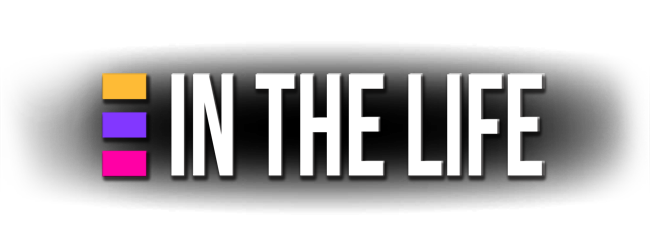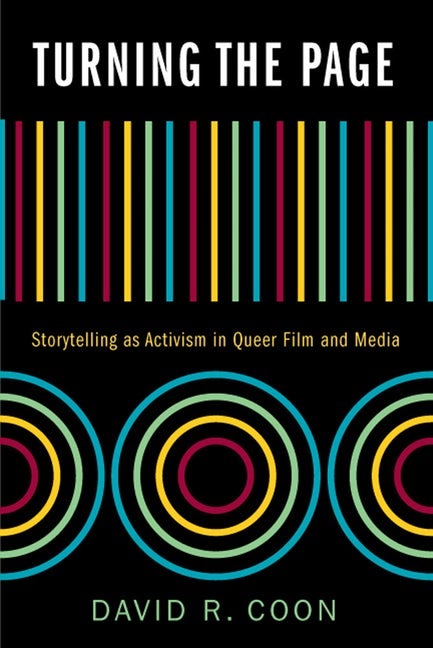You are here
In the Life and In the Archive: 20 Years of Facts and Feelings
About the Author
David Coon is an Associate Professor of Film and Media Studies at the University of Washington Tacoma. He is the author of Turning the Page: Storytelling as Activism in Queer Film and Media (2018) and Look Closer: Suburban Narratives and American Values in Film and Television (2014). His work has also appeared in The Journal of Popular Film and Television, Feminist Media Studies, The Journal of Homosexuality, and The Journal of Film and Video.
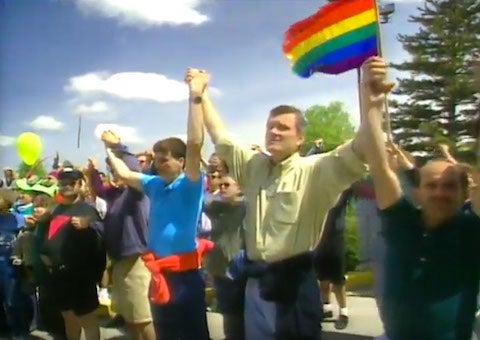
Coverage of Montana's first gay pride parade in Episode 404: “Big Cities, Small Towns: Pride Edition”
An individual’s identity and their understanding of their place in society is heavily influenced by knowledge of their own history and the history of any groups with which they are associated. One of the more important ways we learn about our individual and collective histories is “through the examination of material records of the past.”1 Archives are an important way of preserving evidence of collective histories. The value of such materials is highlighted in the “Universal Declaration on Archives” issued by the International Council on Archives and endorsed by UNESCO in 2011. The declaration says that archives “play an essential role in the development of societies by safeguarding and contributing to individual and community memory. Open access to archives enriches our knowledge of human society, promotes democracy, protects citizens’ rights and enhances the quality of life.”2 Archives are a valuable way to preserve the history of all segments of society, but given the efforts to silence and deny the experiences and stories of LGBTQ individuals over the years, the work of archives to collect, preserve and share documentation of queer history is absolutely crucial.
Traditional archives are often filled with documents that provide evidence of LGBTQ people’s existence along with traces of their words and their actions, but such materials are less effective when it comes to capturing emotional experiences, which are a significant part of what makes queer life experiences unique. Ann Cvetkovich argues that understanding LGBTQ history requires us to collect what she calls an “archive of feelings.” Cvetkovich says, “Lesbian and gay history demands a radical archive of emotion in order to document intimacy, sexuality, love, and activism – all areas of experience that are difficult to chronicle through the materials of a traditional archive.”3 As a film/video documentary series that chronicled LGBTQ issues and current events from 1992 to 2012, In the Life was able to able to go beyond the evidence that might be available in a printed document, capturing moving images and sounds that offer a more nuanced account of LGBTQ life. Cvetkovich notes that documentary filmmaking can be a particularly effective form of archiving, given the ability of documentaries to find “an unexpected range of materials that archive emotion and feeling.”4 As an organized collection of images, sounds and stories now available to the public through the UCLA Film & Television Archive, In the Life helps to archive feelings alongside evidence of political actions, organizations and historical events.
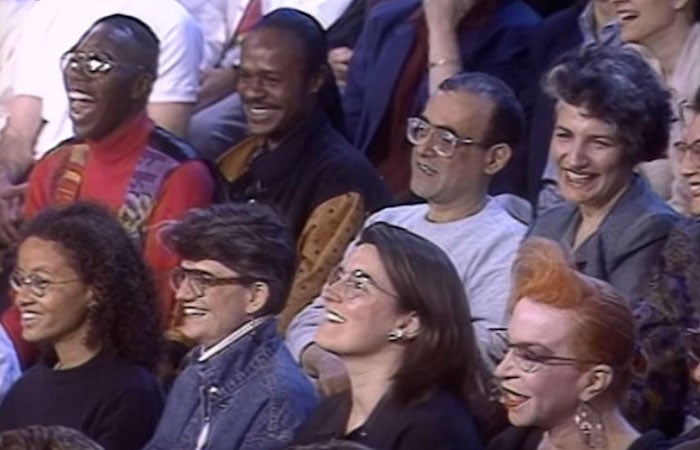
“Pilot” (June 1992)
The “Pilot” episode of In the Life features a series of live performances by LGBTQ singers, dancers and actors, all presented in front of a studio audience. The episode includes many shots of audience members reacting to the performances before them. Their smiles, laughter and applause clearly demonstrate the pride and excitement they feel from being part of this breakthrough television moment. The third season episode “Big Cities, Small Towns: Pride Edition” features a segment about a 1995 pride parade in Helena, Montana. Footage from the parade captures not only the pride and exuberance of parade participants, but also the homophobic anger and hatred of protesters at the event – a reminder of the risks taken by pride marchers in a time and place where homosexual acts were still illegal according to state law.
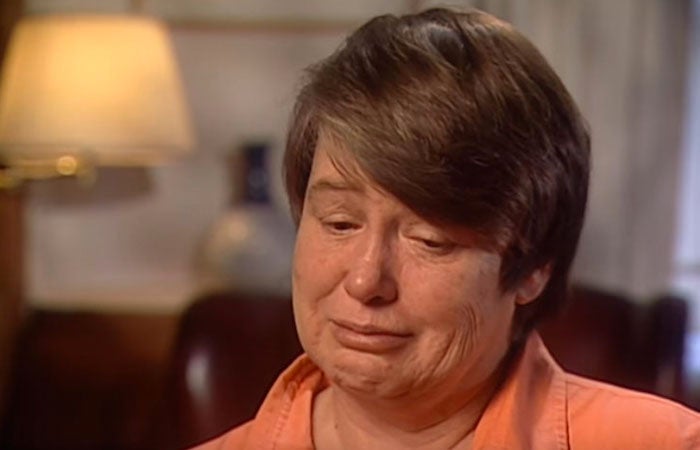
Episode 1107: “Comfort in Crisis” (April 2002)
In the “Victims of 9/11” segment of the Season 10 episode “Comfort in Crisis,” individuals share stories of first losing their partners during the 9/11 attacks and then being denied insurance and other compensation that was regularly given to family members of straight people. They choke up and break into tears as they recount the ordeals they faced. And in the Season 21 episode “Foster Care’s Invisible Youth,” a young woman named Shaquana Green fights back tears as she shares stories of rejection and abuse at the hands of her homophobic mother and foster parents.
These and other clips capture and archive powerful emotions ranging from pride, joy, and happiness to hatred, fear, sorrow and loss. But the clips are not just about displaying archived emotions. They are also likely to generate new emotional responses from those who view them. Thus the feelings presented in the clips do not remain static artifacts in the archive, but are instead transferred to the viewer, providing a fuller understanding of and connection to moments in LGBTQ history.
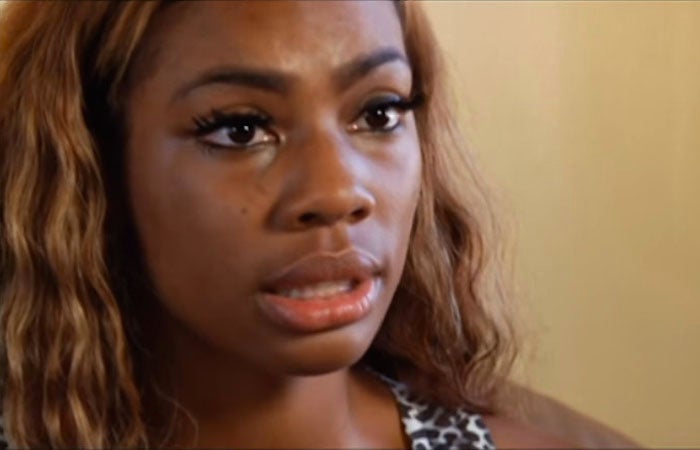
Episode 2202: “Foster Care's Invisible Youth” (November 2012)
While the mere existence of queer materials protected in an archive is valuable in the sense that it acknowledges and respects the experiences of LGBTQ people, a queer archive is far more valuable if it is used in some way. Alexandra Juhasz argues that archival materials can be repurposed and put to use in a process that she refers to as “queer archive activism.”5 Building on this idea, Cvetkovich says that “Queer archive activism insists that the archive serve not just as a repository for safeguarding objects, but also as a resource that ‘comes out’ into the world to perform public interventions.”6 Activists can use archival materials to remind people of past struggles and triumphs, to fight against historical erasure, and to inspire change for the future. Through the research portal provided by the UCLA Film & Television Archive, In the Life becomes an unrestricted, publicly accessible, sharable archive of both facts and feelings. Used in conjunction with other historical accounts, it can be a valuable tool for activists, scholars, teachers and students seeking to understand developments in the LGBTQ rights movement, as well as those wanting to strategize for future social justice efforts.
Notes
1. Aaron Devor, “Preserving the Footprints of Transgender Activism: The Transgender Archives at the University of Victoria,” QED: A Journal in GLBTQ Worldmaking 1, no. 2 (2014): 201.
2. “Universal Declaration on Archives,” International Council on Archives, accessed January 29, 2016, http://www.ica.org/13343/universal-declaration-on-archives/universal-declaration-on-archives.html.
3. Ann Cvetkovich, An Archive of Feelings: Trauma, Sexuality, and Lesbian Public Cultures (Durham, NC: Duke University Press, 2003), 241.
4. Ibid., 269.
5. Alexandra Juhasz, “Video Remains: Nostalgia, Technology, and Queer Archive Activism,” GLQ : A Journal of Lesbian and Gay Studies 12, no. 2 (2006): 319-328.
6. Ann Cvetkovich, “The Queer Art of the Counterarchive,” in Cruising the Archive: Queer Art and Culture in Los Angeles, 1945-1980, eds. David Frantz and Mia Locks (Los Angeles: ONE National Gay and Lesbian Archives, 2011), 32.
This piece was adapted from Turning the Page: Storytelling as Activism in Queer Film and Media, published by Rutgers University Press.
Surprisingly, Hollywood is still clumsily grappling with its representation of sexual minorities, and LGBTQ filmmakers struggle to find a place in the mainstream movie industry. However, organizations outside the mainstream are making a difference, helping to produce and distribute authentic stories that are both by and for LGBTQ people. Turning the Page introduces readers to three nonprofit organizations that, in very different ways, have each positively transformed the queer media landscape: In the Life Media, POWER UP and Three Dollar Bill Cinema. Combining a close analysis of specific films and video programs with extensive interviews of industry professionals, Turning the Page demonstrates how queer storytelling in visual media has the potential to empower individuals, strengthen communities, and motivate social justice activism.
To report problems, broken links, or comment on the website, please contact support
Copyright © 2025 UCLA Film & Television Archive. All Rights Reserved






 Mobile Navigation
Mobile Navigation
